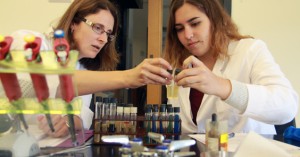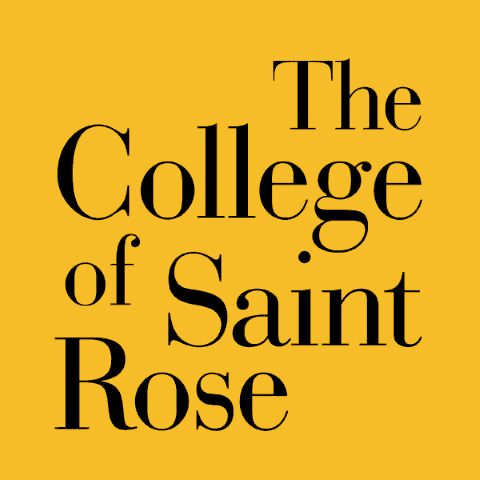How likely is it that household dirt contains dangerous bacteria? This is not a question most people consider. But scientists are not “most” people and the questions they ask and the methods they devise to answer them are crucial to the health and safety of the rest of us.

Summer scholarship: Professor Kari Murad (left) teaches biology student Jeanine Rodriguez ’16 about the (safe) care and feeding of bacteria with an eye toward examining what appears in a vacuum bag of household dust.
“This research experience is not possible in the regular science classroom,” said Jeanine Rodriguez ‘16, a Saint Rose biology major working with Professor Kari Murad on one of the College’s seven competitively funded summer research projects. “We are laying the groundwork and learning laboratory techniques so we can eventually test for Salmonella.”
For the fifth year, Saint Rose faculty and students are using summer months to delve into larger scholarly matters that teach student scholars methodology and independent research skills and help professors further their own areas of interest. This summer, thanks to college-funded grants, students are taking up questions in computational chemistry, literature, English, communications sciences and disorders, psychology and religious studies.
And Rodriguez, working in Murad’s bright third-floor microbiology lab, is learning the meticulous process of isolating and growing materials found in a vacuum cleaner bag, with an eye toward identifying what is in there – aside from dog hair and dust. They want to know whether people introduce Salmonella through exposure at work in, say, agriculture.
“Our hypothesis is that people who work with Salmonella directly or who are exposed to animals infected with Salmonella are at high risk for carrying this potential pathogen home,” said Murad, who was invited to update findings of a published 2002 study.
By the end of the summer she and Rodriguez expect to develop a process to test the contents of 100 or more vacuum bags and begin to assess any health risk they pose.
“Although most cases of Salmonella are caused by food borne illness, a small percent are linked to household infection,” Murad said. “This summer research project is a nice way to start a two- or three-year project that will eventually add to the public health research.”



Comments posted on this site are held in moderation until approved by a site administrator. Vulgar, profane, obscene, offensive terms or personal attacks will not be tolerated.